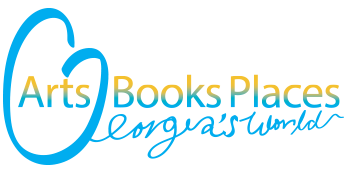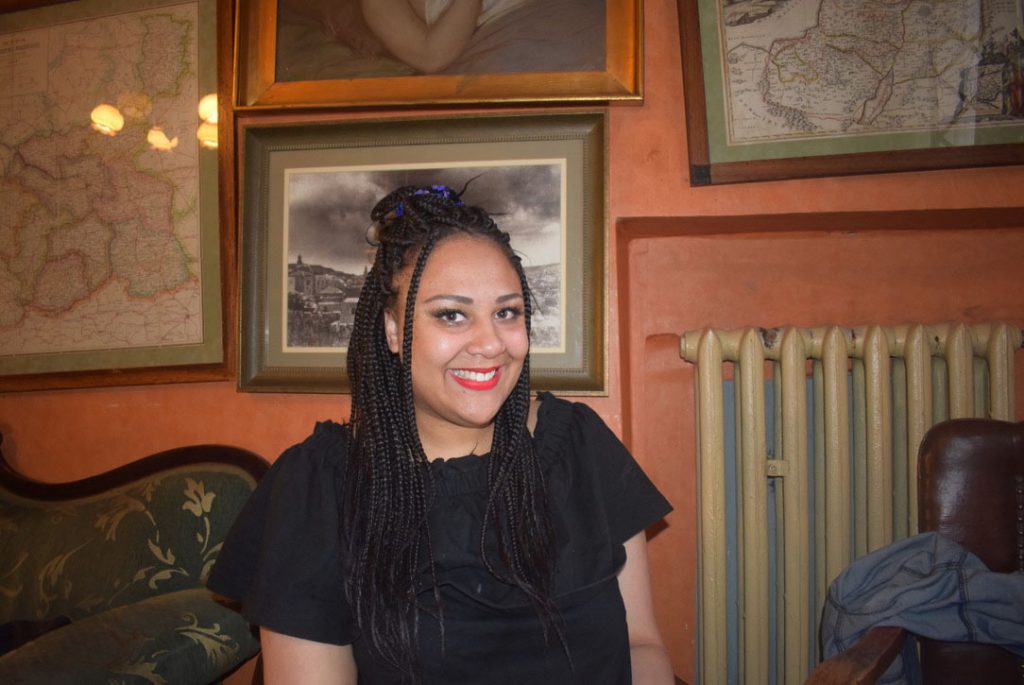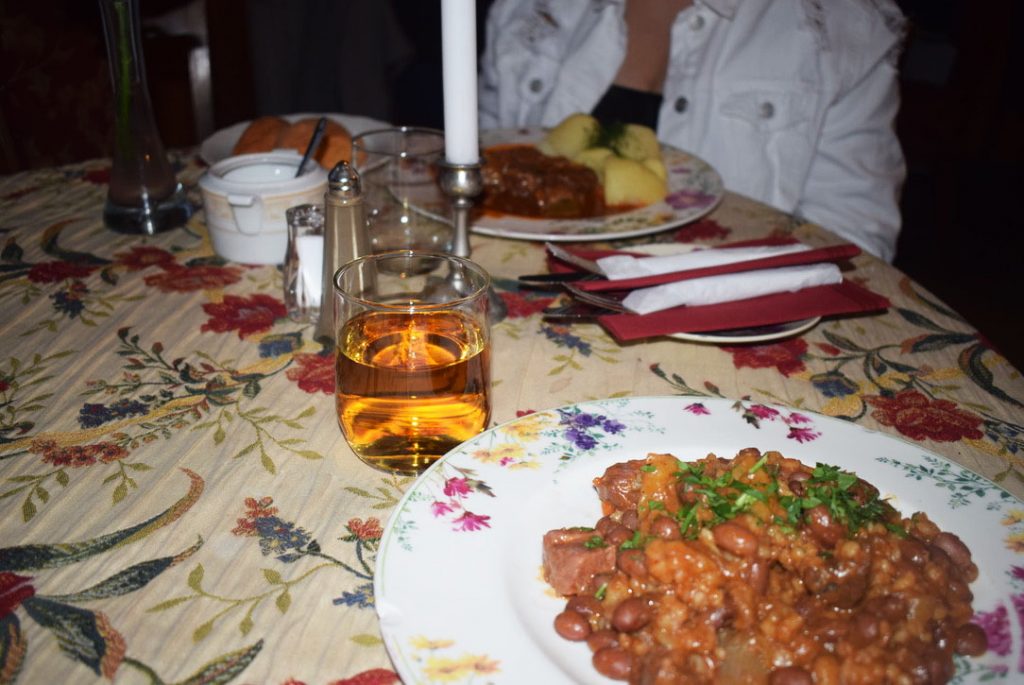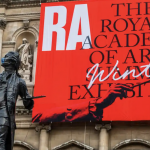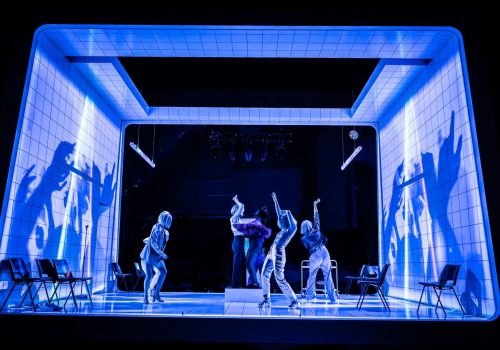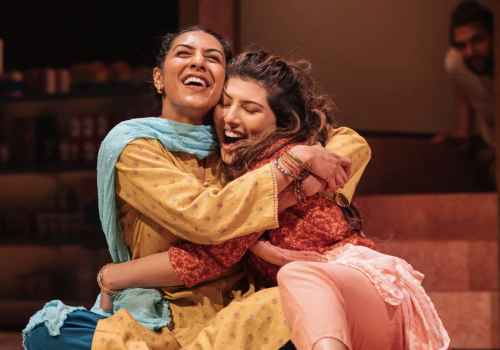Krakow is a truly a magical place, here even the pigeons are said to be enchanted and walking through the streets is like walking through the pages of a fairy tale. Everything you eat is sprinkled in dill, a special kind of fairy dust that belongs to this city. I had such a marvellous time in Poland and I want to share some of the treasures I saw at the Museum of Contemporary Art in Krakow (MOCAK) I also want to make some recommendations for bars and restaurants to visit in the city. With that in mind, the treasures I’ve chosen to highlight in this post are both centred around meals, eating and also to some extent the mythology that surrounds these essential acts
Feiko Beckers
Things I once believed in, that I then stopped believing in and that I now believe in again
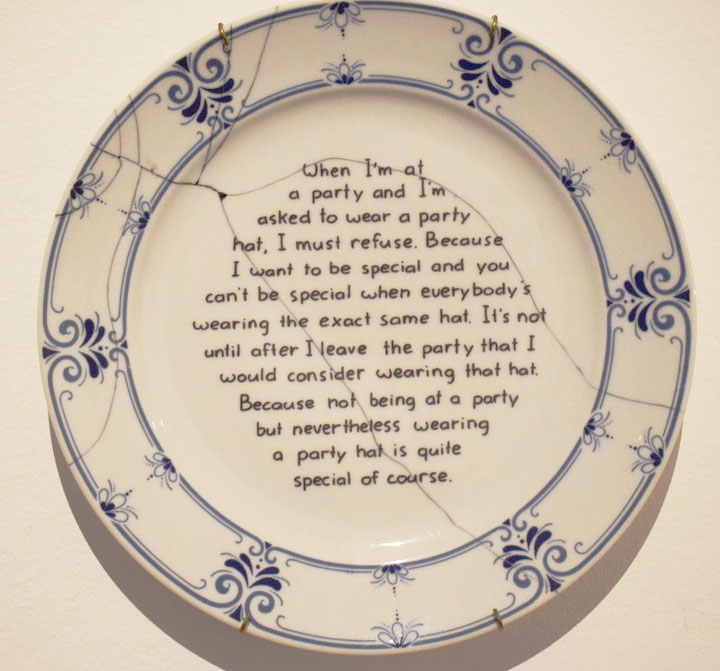
The artist draws on the Dutch custom of placing proverbs and quotations from the Bible on decorative plates. He has turned these traditional adages into his own aphorisms that refer to the paradoxes and problems of everyday life, phrasing them as absolute truths. In this way, the artist has turned his reflections into a singular food, indispensable for survival.
MOCAK
Klezmer-Hois
Dinner in the Jewish Quarter
I really enjoyed dinner at Klezmer-Hois, the traditional food wasn’t fancy but it was nice albeit simple. I can’t remember the name of the dish I had because I asked my waiter what her favourite thing on the menu is and just ordered that but my friend had a beef stew with potatoes and we both really enjoyed our meals. I loved the overall atmosphere of the restaurant too, it was cosy and almost felt like sitting in someones living room. The live music was the icing on the cake.
For dinner, dessert and drinks we paid roughly 60 zloty so about £12
Absynt Cafe
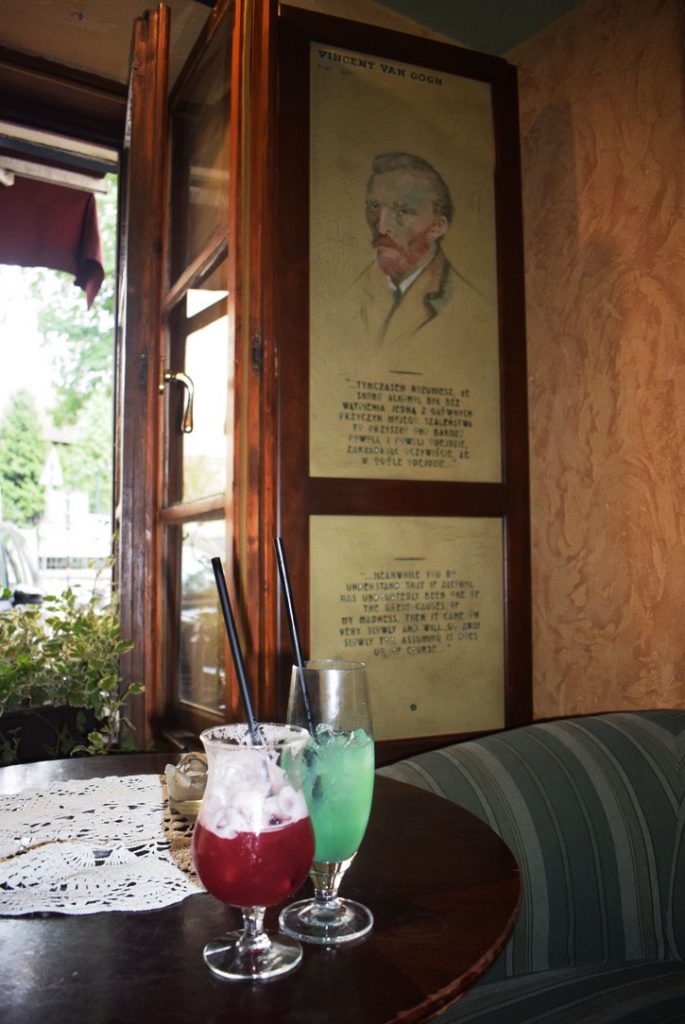
Here you can try an eclectic mix of absinthe cocktails, the prices range from 21-25 zloty per cocktail so roughly £3-5
Daniel Spoerri
The Seville Series No 16
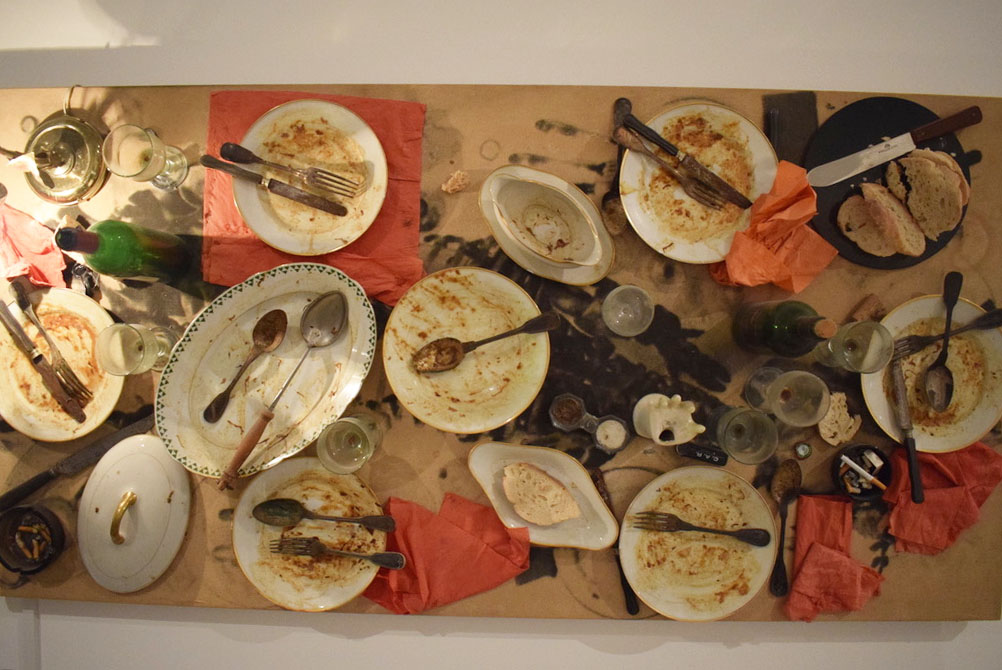
[Spoerri] he fixed in place the detritus that was left on a table at the end of a meal: used napkins, empty bottles, dirty plates and coffee cups, overcrowded ashtrays. To me, they have always looked like casual monuments to bonhomie, to that mood – before the bill arrives – in which the conversation might continue for hours. Spoerri took it up and preserved it, flipping the glued ensemble on its side to hang on the gallery wall: a simple but inspired gesture by which table turned tableau.
Apollo
Charlotte’s
In the spirit of Spoerri
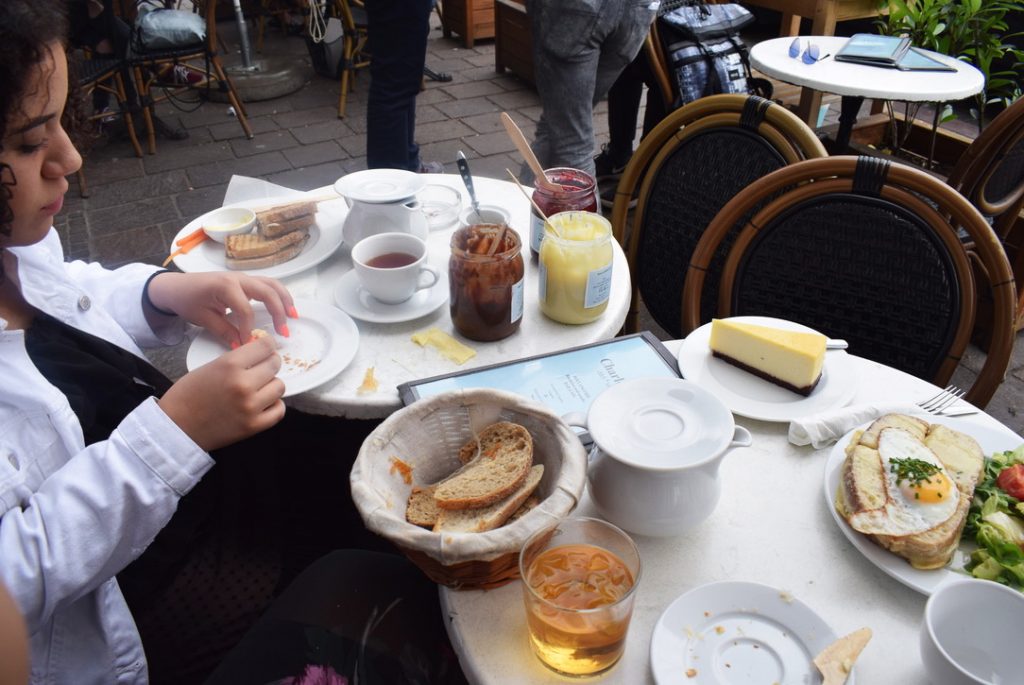
Bar Krakus
Visiting a traditional bary mleczne (milk bar)
You can find milk bars all over Krakow, a relic of Poland’s communist past, they serve traditional Polish food with canteen style service for government subsided prices. The first milk bars opened in 1941 and originally only served milk, back then Poland had an excess of milk and other dairy products so wanted to encourage the public to drink more of it. Later, during the communist regime, many people struggled to afford food which led to restaurants closing down. Milk bars began serving food to workers, good nutritious food like dumplings, potatoes, vegetable soup, omelettes etc Today milk bars still do the same thing and prices have remained low.

